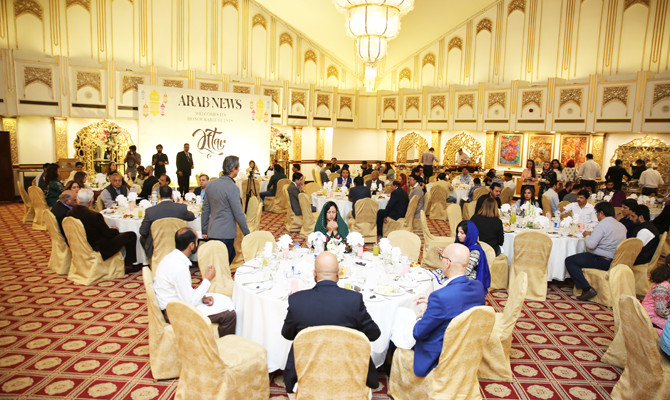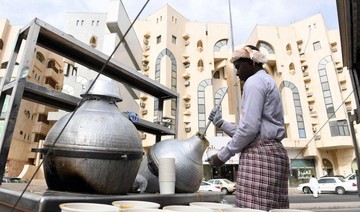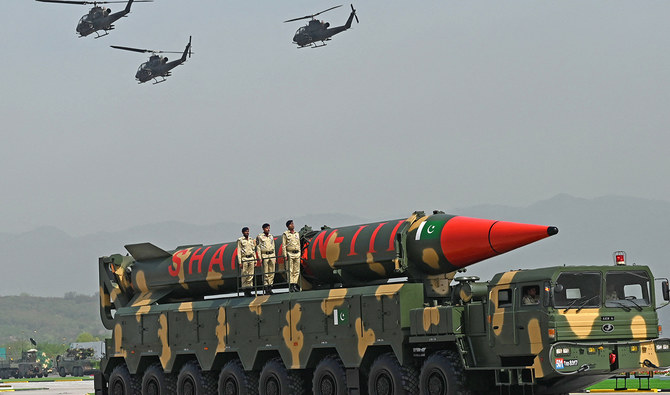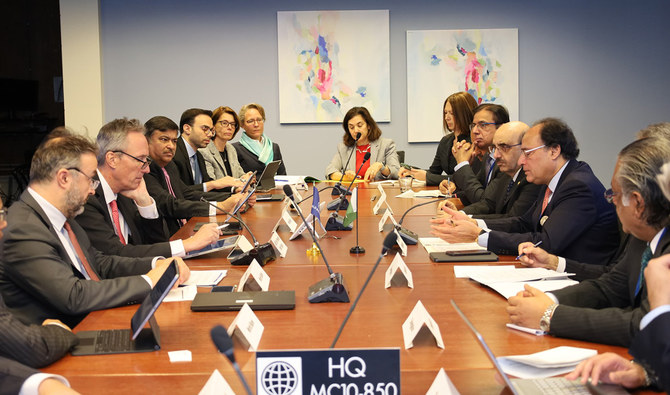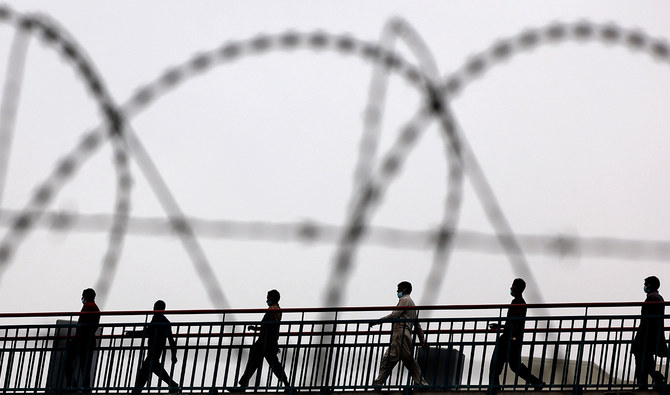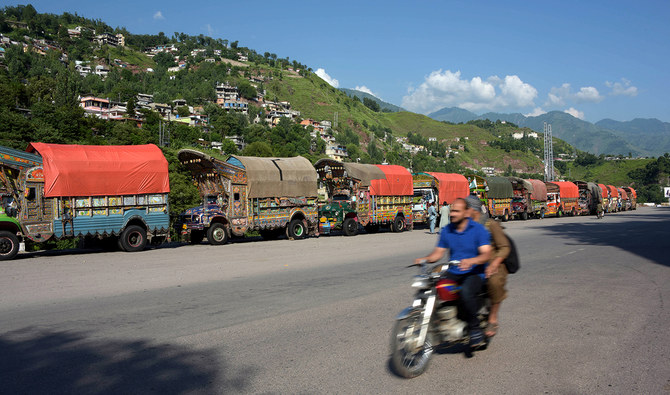ISLAMABAD: As Ramadan has begun all over the world, Arab News invited the media fraternity of Pakistan’s capital, Islamabad, to join together for an iftar dinner.
Hosted by Southeast Asia Bureau Chief, Baker Atyani, the event took place in the Crystal Ballroom of the landmark Marriot Hotel in Islamabad. The room was marked by the signature celebration that evenings in Ramadan are known for: A soundtrack of soft, melodic songs with a spiritual twist.
News and print media journalists, from veterans to newcomers, former ambassadors and the media representatives of business outfits, the Pakistan Navy, and even political parties came together for iftar under one roof.
"I met a few new people and learned that there is a lot happening in Islamabad. People that I had never met before, even though I’ve lived in Islamabad all my life; it was a great experience meeting so many new people working here," said Mehreen Adam, secretary-general of the All Pakistan Muslim League, the political party led by former President Gen. Pervez Musharraf.
For the world of news journalism, it was an iftar that doubled as an opportunity to sit across from colleagues whom they may not have had a chance to meet before as well as also meeting reporters and editors from one of the country’s most iimportant but underrated cities.
Tahir Khan, vice president of business development for Nayatel, said: "It’s always good to have interaction with media people, especially with those in news channels and print. Looking after the diplomatic domain, even if it’s only once a year, it's good to interact with everyone. Iftars in particular happen to be good ice breakers."
The event drew many from all over Islamabad including seasoned journalists such as Afzal Hussain Rizvi.
"Events like this help to cultivate journalists from the area; for journalists and Arab News it’s an opportunity to see if there is any contribution they can make, and an event like this is important because iftar is a celebration," he said.
Also in attendance was Commander Rashid Nazir, public relations director of Pakistan Navy, who commented on the importance of opening conversations between the media and institutions such as the navy.
"It was great to be with the journalistic community and Arab News. We would love to have more interaction with Arab News and journalists in general," he said.
Arab News Pakistan was officially launched in February of this year with the iftar marking the third month of operation.
Atyani, who has played a hands-on role from the launch to the running, wanted to thank those who have supported the Pakistan edition of the famous Saudi paper.
"This was an evening where we could not only thank those who have supported us since we launched three months ago, but also bring all those people together here with us and encourage both festivity and conversation."








